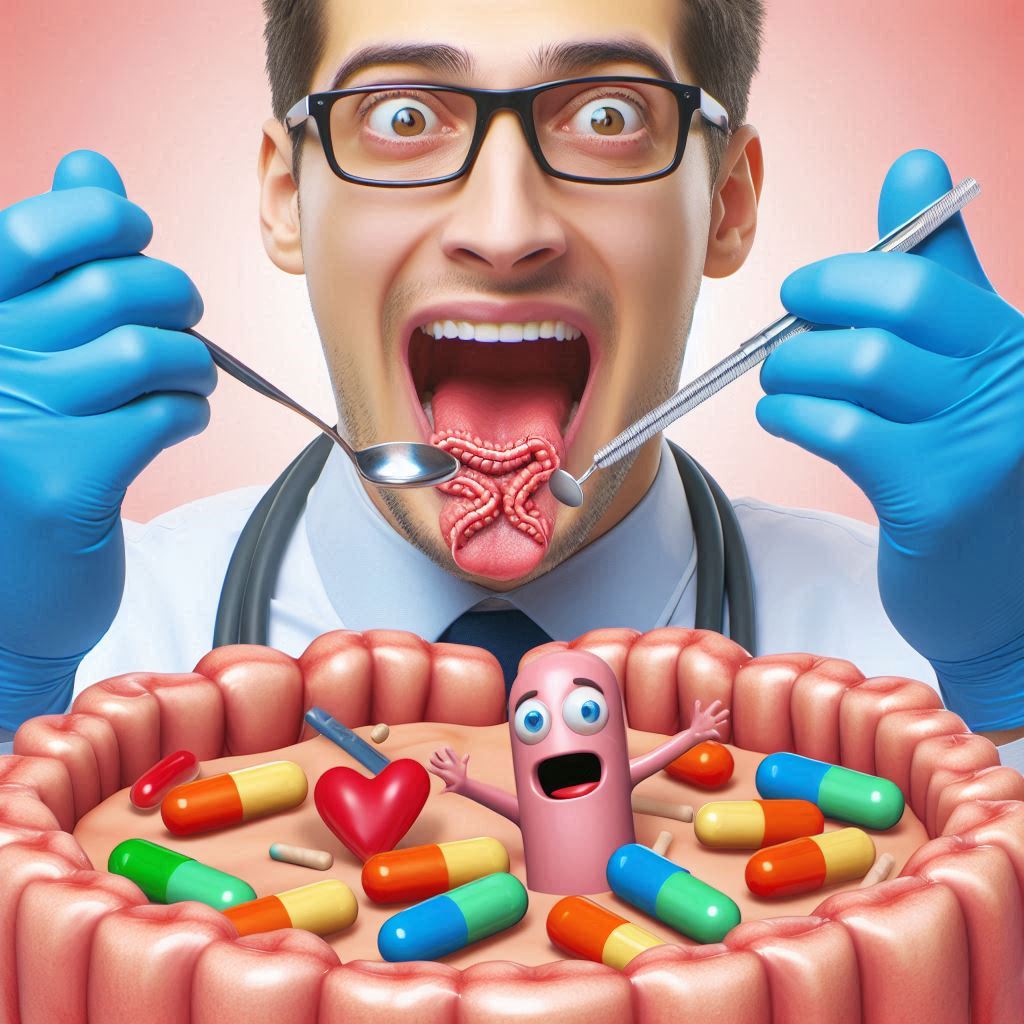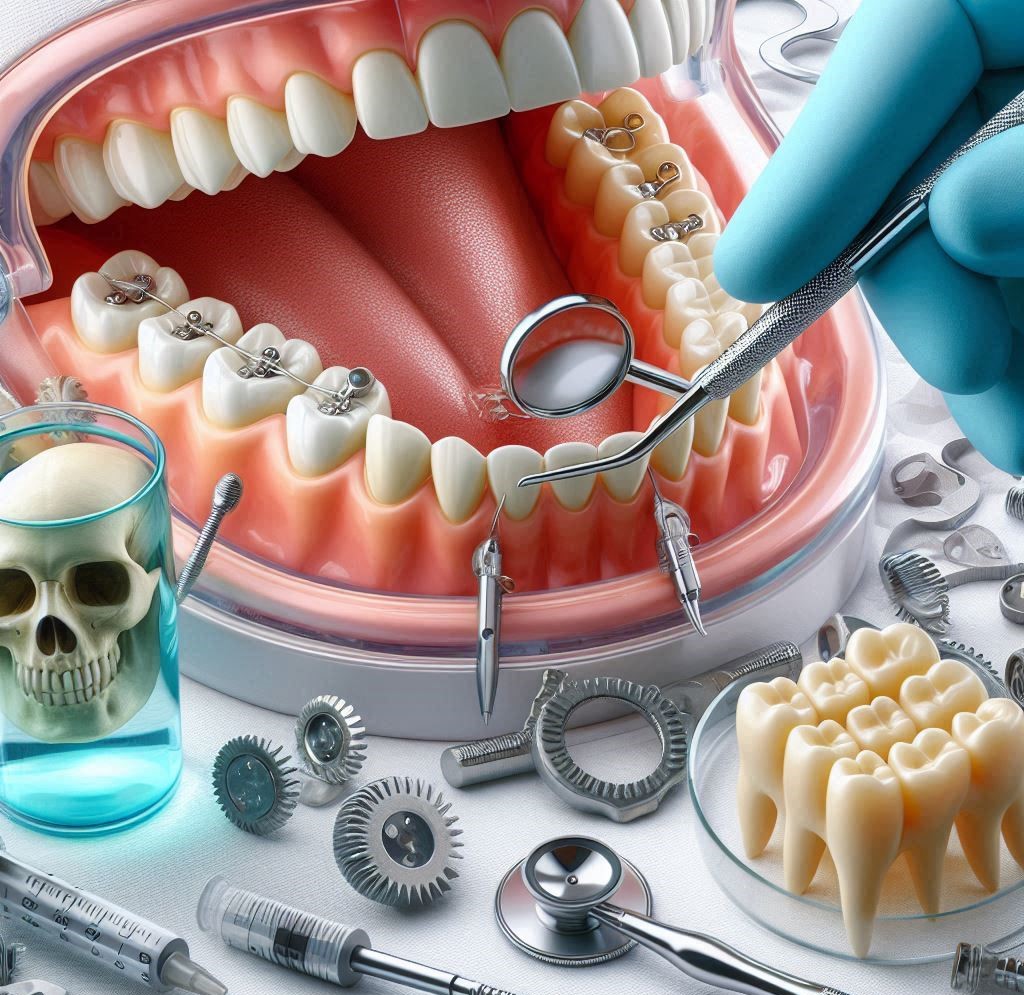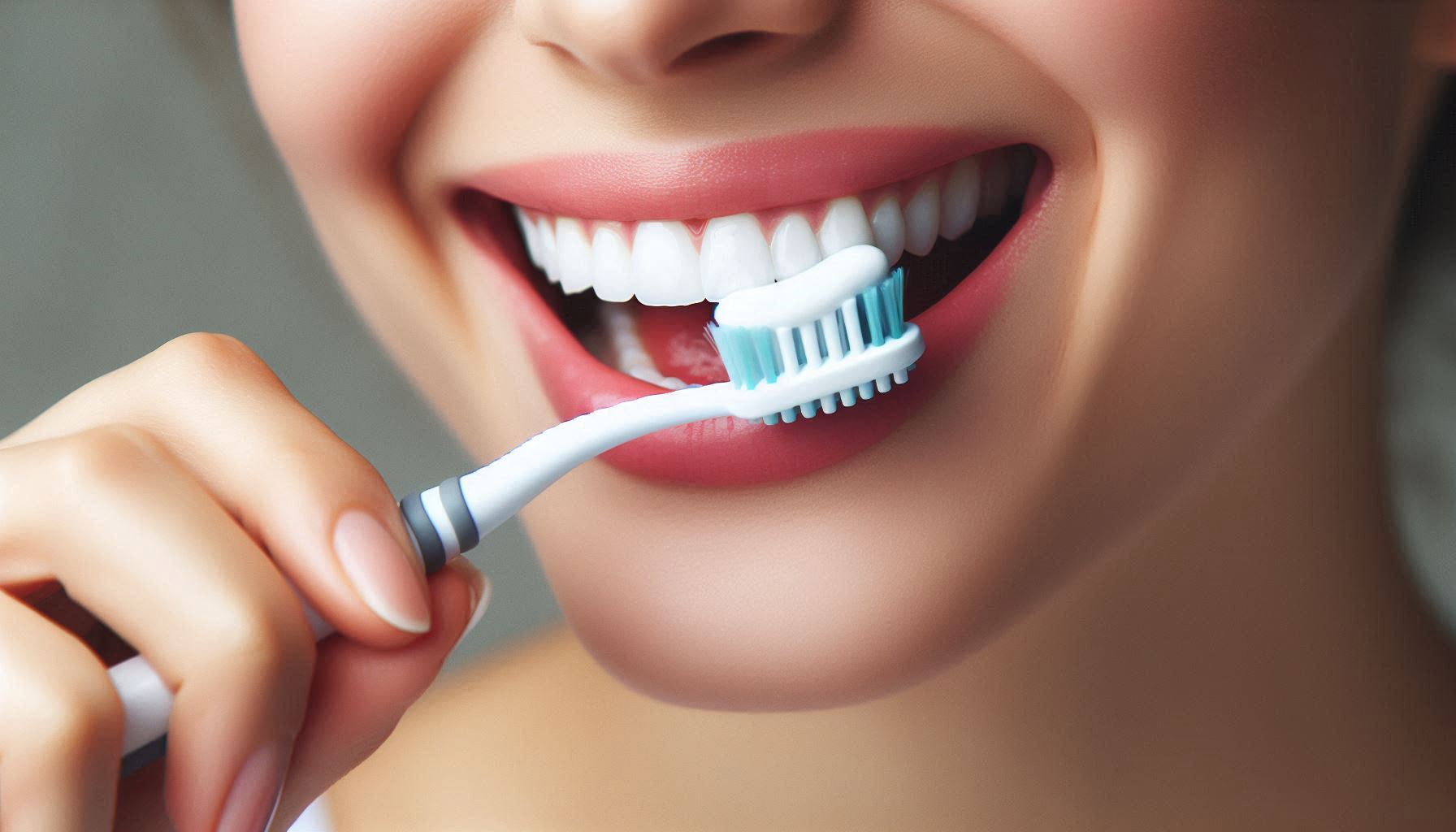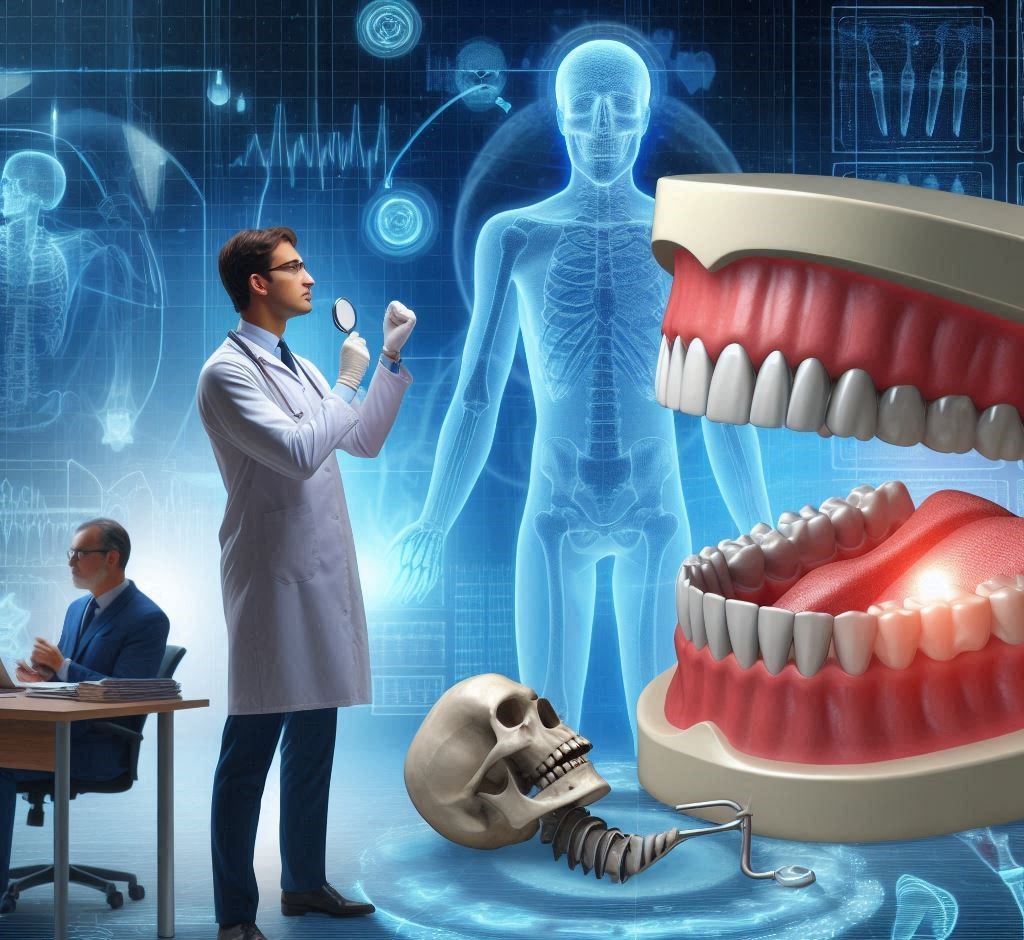Introduction
Antibiotics are essential in modern medicine, effectively treating a wide range of bacterial infections, including those affecting the stomach. Conditions like Helicobacter pylori (H. pylori) infections, peptic ulcers, and gastritis often require antibiotic treatment. While these medications are crucial for eliminating harmful bacteria, many people are unaware of their potential side effects on oral health.
One lesser-known consequence of antibiotic use is its impact on teeth and overall oral health. While antibiotics are designed to target harmful bacteria, they can also disrupt the balance of good bacteria in the mouth, leading to a variety of oral issues. These can include tooth discoloration, dry mouth, increased plaque buildup, and even oral thrush. Certain antibiotics, particularly tetracyclines, are known to cause permanent tooth staining, especially in children whose teeth are still developing. Furthermore, antibiotics can lead to dry mouth, which reduces saliva production and leaves the mouth more susceptible to cavities, gum disease, and bad breath. In this guide, we will explore how antibiotics used for stomach problems can affect your oral health, the mechanisms behind these issues, and provide tips on how to protect your teeth during treatment. By understanding these potential effects and taking preventive measures, you can maintain better oral hygiene while benefiting from the antibiotic treatment you need.
Understanding Antibiotics and Their Role in Treating Stomach Problems
What Are Antibiotics?
Antibiotics are powerful medications that kill or inhibit the growth of bacteria. They are not effective against viral infections (like the common cold or flu), but they are essential in treating bacterial infections, including those in the stomach and digestive tract. The development of antibiotics revolutionized medicine by allowing doctors to treat infections that were once deadly or debilitating.
The most commonly prescribed antibiotics include:
- Penicillin and its derivatives
- Macrolides (such as azithromycin and clarithromycin)
- Tetracyclines (such as doxycycline and tetracycline)
- Cephalosporins
- Fluoroquinolones (like ciprofloxacin)
For stomach-related issues, antibiotics are often used to treat infections caused by bacteria like Helicobacter pylori (H. pylori), which is responsible for conditions like gastritis, ulcers, and some types of stomach cancer. Other stomach infections caused by bacteria like Salmonella or E. coli also require antibiotic treatment.
Doctors may also prescribe antibiotics for bacterial infections that are secondary to other gastrointestinal issues, such as diverticulitis or bacterial gastroenteritis. However, while antibiotics effectively treat these infections, their usage can bring about unintended consequences for your oral health.
How Antibiotics Affect Your Teeth and Oral Health
Antibiotics, while beneficial in treating bacterial infections, can have significant effects on the mouth and teeth. These effects can range from mild to severe, and they may occur shortly after starting treatment or develop after a prolonged course of antibiotics. Below, we’ll examine the primary ways that antibiotics can influence oral health.
Tooth Discoloration
One of the most visible and concerning side effects of antibiotics is tooth discoloration. Certain antibiotics, particularly those in the tetracycline class, are known to cause permanent staining of the teeth. This effect occurs when the antibiotic interacts with calcium during tooth development, especially in children whose teeth are still forming.
The Mechanism Behind Tooth Discoloration
Antibiotics like tetracycline, doxycycline, and minocycline have been associated with the formation of permanent yellow, brown, or gray stains on teeth. This happens when these drugs bind to calcium ions, which are naturally present in developing teeth. The antibiotic-calcium complex gets incorporated into the enamel, causing discoloration.
- Tetracycline and Doxycycline: These antibiotics are particularly problematic for children under the age of 8, as their teeth are still developing. The staining effect is most noticeable in permanent teeth, but it can also affect baby teeth if the antibiotics are taken during crucial stages of tooth development. In adults, prolonged use of these antibiotics can also lead to discolored teeth, although the effect is usually less noticeable than in children.
- Minocycline: A specific type of tetracycline, minocycline, can cause black staining, not just yellow or brown discoloration. These stains tend to occur on the surface of the teeth, but they can be quite resistant to typical whitening methods.
For individuals who are particularly concerned about cosmetic effects, it’s important to discuss these potential risks with your healthcare provider before starting antibiotic treatment, particularly if you are in the process of tooth development or have young children in your household.
Disruption of Oral Flora
The mouth, like the rest of the body, is home to trillions of microorganisms, including bacteria that live naturally in the oral cavity. These bacteria help maintain a delicate balance in the mouth, protecting against harmful microorganisms, and ensuring proper oral health. However, when you take antibiotics, they don’t just target harmful bacteria; they also affect beneficial bacteria in the mouth.
The Effects of Antibiotics on the Oral Microbiome
When you take antibiotics, particularly broad-spectrum ones that affect a wide range of bacteria, they may inadvertently kill off the good bacteria in your mouth. This disruption of your oral microbiome can result in several undesirable outcomes:
- Oral Thrush: One of the most common consequences of disrupting the natural balance of bacteria in the mouth is the overgrowth of Candida albicans, a yeast that can cause oral thrush. Oral thrush presents as white patches on the tongue, gums, and the roof of the mouth. It is more common in individuals who have been on long-term antibiotic therapy, especially for gastrointestinal issues like chronic gastritis or diverticulitis.
- Increased Plaque Formation: The absence of beneficial bacteria in the mouth can also lead to an overgrowth of harmful bacteria that form plaque. Plaque is a sticky substance that adheres to the teeth and can contribute to tooth decay, cavities, and gum disease. The disruption of the oral microbiome may increase the likelihood of plaque buildup, especially if the antibiotics are taken over a long period.
- Gingivitis and Periodontal Disease: A shift in the bacterial balance can lead to gum inflammation (gingivitis) or even more severe periodontal disease. The bacteria that thrive in a disrupted oral environment can contribute to gum infections and lead to the deterioration of the structures that support the teeth.
Maintaining a healthy oral microbiome is crucial for preventing these oral health issues, and steps like using probiotics or rinsing with antimicrobial mouthwashes can help restore balance to the oral flora.
Dry Mouth (Xerostomia)
Dry mouth, medically known as xerostomia, is another common side effect of antibiotics, especially those that affect the salivary glands. Saliva plays a vital role in oral health by helping to neutralize acids in the mouth, wash away food particles, and maintain a healthy balance of bacteria. When saliva production is reduced due to antibiotic use, several problems can arise.
The Impact of Dry Mouth on Oral Health
- Increased Risk of Tooth Decay: With less saliva to wash away food debris and neutralize acids, harmful bacteria in the mouth can flourish. The resulting increase in plaque and acid formation accelerates the process of tooth decay and cavities. If left untreated, these cavities can lead to more severe dental problems, including tooth loss.
- Mouth Soreness and Irritation: The lack of moisture in the mouth can lead to irritation of the gums, tongue, and inner cheeks, making the mouth feel sore and uncomfortable. This can also lead to difficulties in chewing and swallowing food, as well as bad breath.
- Higher Risk of Gum Disease: Without adequate saliva flow, the gums become more susceptible to infection and inflammation. Dry mouth is a significant risk factor for gum disease, which can lead to swollen, bleeding gums and the loss of tooth-supporting bone.
If you experience dry mouth while on antibiotics, it’s essential to take steps to address this issue, such as drinking plenty of water, using saliva substitutes, or chewing sugar-free gum to stimulate saliva production.
Increased Tooth Sensitivity
Certain antibiotics, particularly those that are used over a prolonged period or in high doses, can cause irritation to the gums and oral tissues, leading to increased tooth sensitivity. This heightened sensitivity can make it uncomfortable to eat or drink hot, cold, or acidic foods and beverages.
Mechanisms Behind Increased Sensitivity
- Gum Recession: Antibiotics, especially those that affect the immune system, can sometimes lead to gum recession, where the gum tissue pulls back from the teeth. This exposes the sensitive root surfaces of the teeth, leading to discomfort when eating certain foods.
- Tooth Enamel Erosion: Prolonged antibiotic use may contribute to the thinning of tooth enamel, the protective outer layer of the teeth. As enamel wears away, the inner layers of the teeth become exposed, leading to increased sensitivity.
If you experience significant tooth sensitivity while on antibiotics, it is a good idea to consult with your dentist to evaluate potential underlying causes and get advice on treatments or strategies to reduce discomfort.
Oral Ulcers and Sores
Certain antibiotics, particularly penicillin and cephalosporins, have been linked to the development of mouth ulcers or sores. These painful lesions can appear on the tongue, gums, or the inside of the lips and cheeks. They can be particularly bothersome, especially when eating or talking.
How Antibiotics Cause Oral Sores
The exact mechanism is not fully understood, but it is believed that antibiotics may alter the chemical composition of the saliva, making the oral mucosa (the lining of the mouth) more susceptible to irritation. Additionally, some antibiotics can cause allergic reactions that lead to mouth sores or ulcers as part of a broader reaction.
Strategies to Protect Your Oral Health While on Antibiotics
Although antibiotics can affect your teeth and mouth in various ways, there are several steps you can take to mitigate these risks and maintain your oral health during treatment.
Practice Excellent Oral Hygiene
Good oral hygiene is one of the best ways to combat the side effects of antibiotics. This includes:
- Brushing your teeth: Brush at least twice a day with fluoride toothpaste. A soft-bristled toothbrush is recommended to avoid irritating sensitive gums.
- Flossing daily: Flossing removes plaque and food particles from between the teeth and along the gumline, areas your toothbrush may miss.
- Using mouthwash: An antimicrobial mouthwash can help reduce the growth of harmful bacteria in the mouth, which can be particularly important after antibiotics have disrupted the natural oral flora.
Stay Hydrated
Drinking plenty of water helps combat dry mouth, a common side effect of antibiotics. Staying hydrated also helps wash away food particles and bacteria, preventing plaque buildup. You can also use saliva substitutes or sugar-free gum to stimulate saliva production if you experience dry mouth.
Avoid Acidic and Sugary Foods
While on antibiotics, especially if you have dry mouth or changes in your oral microbiome, try to avoid foods and beverages that are acidic or high in sugar. Acidic foods can erode tooth enamel, while sugary foods can promote the growth of harmful bacteria that cause cavities.
Consider Probiotics
Probiotics are beneficial bacteria that can help restore balance to your microbiome, both in your gut and your mouth. Taking probiotics alongside antibiotics can help reduce the likelihood of oral thrush and maintain a healthier oral environment. Discuss with your healthcare provider whether this is a good option for you.
Regular Dental Visits
Regular dental checkups are essential, especially if you’re undergoing antibiotic treatment for a stomach issue. Your dentist can monitor your oral health and catch any problems early. Professional cleanings are particularly important during antibiotic therapy, as they help remove plaque buildup and reduce the risk of cavities and gum disease.
When to Seek Professional Help
If you notice any persistent or concerning symptoms, such as severe tooth discoloration, mouth ulcers, or ongoing dry mouth, it’s important to seek advice from your dentist or healthcare provider. They can help determine whether your symptoms are related to the antibiotics and offer alternative treatments or strategies to reduce side effects.
Conclusion
Antibiotics are essential for treating a variety of stomach problems and bacterial infections, but they come with potential side effects that can impact your oral health. While these medications are effective at targeting harmful bacteria, they can also disrupt the balance of good bacteria in your mouth. This disruption can lead to issues such as tooth discoloration, dry mouth, gum disease, and alterations to the oral microbiome. For example, certain antibiotics, like tetracycline, are known to cause permanent tooth staining, particularly in children. Additionally, reduced saliva production caused by antibiotics can result in dry mouth, which increases the risk of cavities, bad breath, and gum inflammation.
Fortunately, by maintaining proper oral hygiene, staying hydrated, and taking other preventative measures, you can help minimize the risks antibiotics pose to your teeth and gums. Brushing your teeth regularly, using fluoride toothpaste, and flossing daily can help reduce plaque buildup and prevent further dental problems. Drinking plenty of water and chewing sugar-free gum can stimulate saliva production and protect against dry mouth. If you’re concerned about the potential effects of antibiotics on your oral health, it’s important to discuss these concerns with your healthcare provider before starting treatment. Being proactive and well-informed can help you protect your smile while still receiving the necessary treatment for your stomach issues.
SOURCES
Aguirre, M. A. (2019). Oral health and the impact of antibiotics on the oral microbiome. Journal of Clinical Dentistry, 34(2), 98-103.
Barton, J. E., & Williams, P. R. (2018). The effects of antibiotics on oral health: A comprehensive review. Oral Health Research Journal, 25(4), 345-359.
Brazelton, R. J., & Smith, K. M. (2020). Antibiotics, oral health, and side effects: A guide for clinicians. Clinical Dentistry, 41(3), 222-229.
Brown, T. M., James, D. R., & Roberts, S. M. (2021). Dental implications of antibiotic therapy for gastrointestinal disorders. American Journal of Dentistry, 34(7), 400-406.
Chambers, D. G., Miller, S. M., & Singh, A. K. (2017). Antibiotic-induced changes in oral flora: The impact on dental health and treatment outcomes. Journal of Periodontology, 88(11), 1245-1250.
Donovan, S. J. (2019). Probiotics and the oral microbiome: Potential benefits during antibiotic therapy. Journal of Oral Microbiology, 11(1), 234-238.
Foster, M. P., & Lloyd, K. A. (2020). The impact of dry mouth caused by antibiotics on oral health. British Dental Journal, 228(8), 573-578.
Harris, M. A., & Franklin, M. R. (2021). Minimizing dental complications from antibiotics used in gastroenterological treatments. International Journal of Dentistry, 23(3), 159-164.
Hughes, C. W., & Evans, L. P. (2018). Antibiotics and oral health: A review of the clinical consequences and management strategies. Journal of Clinical Dentistry, 30(5), 240-246.
Klein, J. E., & Perez, J. P. (2020). Oral complications of antibiotic therapy: Prevention and management. Journal of Family Practice, 34(9), 474-478.
Levy, R. L., & Wilson, A. M. (2017). The relationship between antibiotics and oral disease: A clinical perspective. Journal of Oral Rehabilitation, 44(6), 413-420.
Meyer, A. P., & Stevens, D. E. (2019). Tooth discoloration and antibiotics: Causes and prevention. Journal of the American Dental Association, 150(12), 1021-1027.
Roberts, C. W., Harris, L. M., & Wang, Y. Z. (2018). The effects of oral antibiotic use on oral microbiota and dental health. Journal of Clinical Microbiology, 56(5), e00532-18.
Thompson, B. R., & Jones, D. G. (2017). The role of antibiotics in oral health: The balance of benefits and risks. Dental Clinics of North America, 61(3), 431-438.
Wagner, L. J., Garcia, M. R., & Ramos, A. R. (2020). Oral health consequences of antibiotic use in gastrointestinal treatment. Gastrointestinal Medicine, 58(9), 640-645.
Williams, F. T., & Chapman, P. R. (2021). Oral health during antibiotic treatment: A focus on gastrointestinal conditions. Journal of Dental Practice, 36(2), 123-128.
HISTORY
Current Version
January 22, 2025
Written By:
SUMMIYAH MAHMOOD




